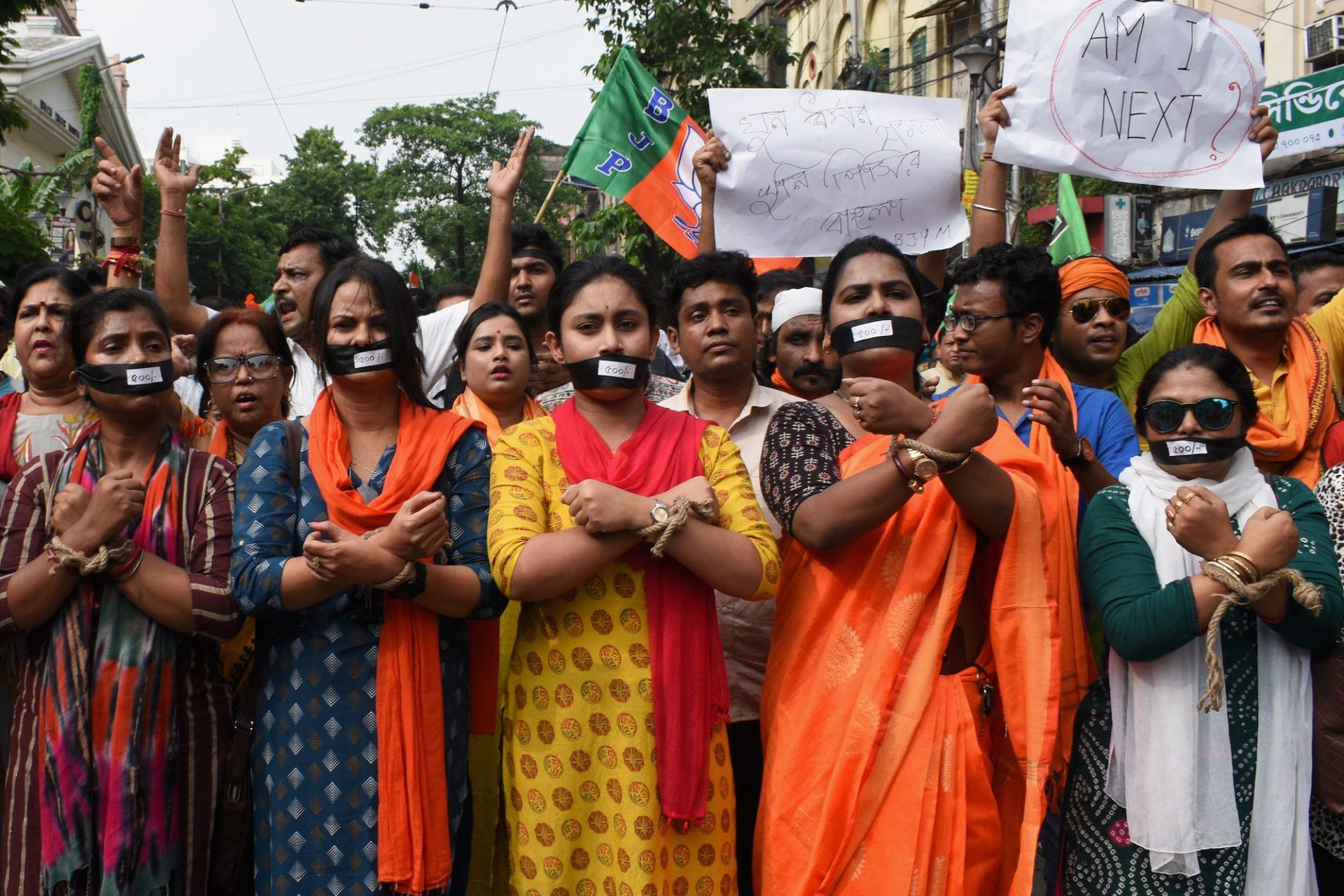By Kanksshi Agarwal and Avani Bansal
The visuals of two women being buried alive in the Rewa district of MP merely for standing up to the construction mafias and opposing construction on their leased land sent chills down the spine. Notwithstanding that the dispute was personal – the sheer impunity of the accused in attempting to bury women alive, is revealing of the general attitude towards women in India. But when it comes to women’s rights, nothing seems to be shocking enough to jolt us into action.
Women’s concerns and flurry of welfare schemes are now synchronous with election season, and that is where women’s rights begin and end for those in power.
Either the women are “victims” or “beneficiaries” in our popular discourse. Between violence-filled news and government advertisements – are the politicians ready to move beyond lip service, symbolic anger, and protests to real on-action ground to facilitate women’s rights in India?
Are politicians ready to work on systemic issues such as ‘ensuring safety of women in politics’? If yes, why not voluntarily implement PosH Act 2013 and set up Internal Complaints Committee to deal with sexual harassment complaints of women who are working in your party? How can we expect politicians to fight for all women of this country, when they can’t take a stand for the women in their own parties?
Are politicians willing to put their money where their mouths are and work towards implementation of women reservation in their own parties, at all levels and also in ticket distribution?
Are politicians ready to work towards systemic issues plaguing Indian women such as lack of equal education, good healthcare, equal and safe job opportunities?
If the answer is yes – why isn’t it already happening? If the answer is no- the question is why not?
Perhaps, the answer lies in the fact that women in India have still not emerged as a consolidated vote bloc demanding their rights. Unlike their American and European counterparts, women in India got a right to vote, with a few women organizing themselves and constantly lobbying with the Indian political stakeholders and the British Government. There has never been a time, in Indian history, when women in India saw a nationwide movement on an issue concerning them.
The images of women parading naked to protest against AFSPA in Manipur in 2004, to women being forcefully paraded naked in the recent Manipur riots in 2024 – the message is clear. Women’s bodies are sites of power and the matrilineal nature of the north-eastern societies brings this in focus.
But even in the north-east, the few number of women in politics explains that much remains to be done to translate activism into political power. For the rest of the country, an insane number of ghastly violent episodes fail to stir our national collective consciousness and have also failed to drive women towards a collective fight of placing ‘women consciousness’ in the mainstream, akin to the systemically rising Dalit consciousness in India.
It is for this reason, that while all political parties try to woo the women voters – they don’t fear them in a way that could have political consequences. Politicians don’t worry that their callous and offensive remarks, such as the recent jibe by Nitish Kumar, ‘you are a woman, you know nothing,’ will cost them anything. Such comments have no place in our democracy, but the question is who will make that felt?
What we need in all urgency is for politicians to stop infantilizing women.What we need is to see women in India as ‘leaders’, not just as ‘labharthis’. We need to ensure that women are promoted as active changemakers in all spheres of political and social action.
Political messaging to women in campaigns should not reduce them to ‘behnas and didis’ who are wooed by a gift of Rs. 250 in their accounts every rakhi, as reducing women’s rights to a “gift” will do more harm than good to women’s dignity and agency. Throwing crores of rupees in women’s welfare schemes in annual budgets, like this year’s, without fixing the accountability as regards adequate utilization of those funds is not going to do the trick either. Continuing to see women in relation to men – as someone’s wife – who now needs a ‘No Objection Certificate (NOC)’ to change her maiden name after marriage ; as someone’s beti – being a soft target for all the political anger against her parents; for being someone’s behan – receiving a rakhi gift and relying completely on her brother for protecting her, as opposed to empowering her to make her own life choices; all this has to stop. Women have to be seen independent entities.
It is the lack of fear of women voters as a class that they are not taken up as serious candidates. The dip in the current representation of women in Indian Parliament (12%) is a direct consequence of unfair ticket distribution towards women. So while all political parties are in a race to distribute freebies to women voters, none worry about ensuring equal representation of women in their own parties.
It is not statistically proven or morally correct for parties to say that we don’t give tickets to women because they don’t win! The question to be asked is – what are political parties doing to ensure women’s victory and how are they helping in rising voter consciousness to enable women as leaders? What are they doing to ensure women issues are made mainstream, not a once in a while affair?
Political parties need serious reflection on whether their actions will speak lounder than their words. Women won’t take the blame anymore, it’s you.


